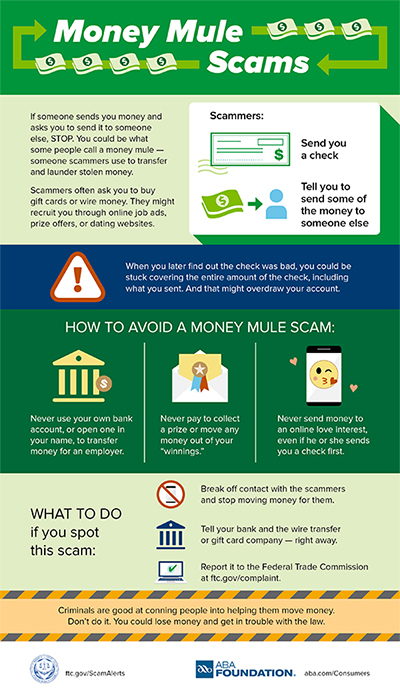
While getting paid well for relatively little work - from home - always sounds appealing, this is especially true in the current job market. Online recruitment ads with titles like “money transfer agent,” “payment processing agent,” or “mystery shopper” start showing up, and the details might sound a little vague, but the job sounds easy enough, and better yet, can usually be done from home.
Unfortunately, many of the “companies” running those ads are actually criminal enterprises trying to recruit money mules or “smurfers.” A money mule is someone who, in effect, launders money acquired illegally. When someone is “hired” for such a position, they’re often asked to provide their bank account information as part of employee onboarding. They don’t realize it at the time, but that information is typically used for receiving wire transfers and perhaps counterfeit checks. For example, the “employer” will wire their “employee” $5,000, then – to help avoid taxes or transfer fees – ask the employee to transfer $4,000 of that to another location, typically overseas.
Following are typical warning signs for a money mule employment scam:
Why Do Criminals Use Money Mules?

Click for a larger image.
While someone acting as a money mule may not always be aware of their role in an illegal enterprise, they will be held financially and criminally responsible if they’re caught. Here are some of the possible criminal charges a money mule could face:
Protect yourself
Employment scams aren't the only way scammers recruit money mules, but it is one of the most common. If you believe you're a victim, please contact your bank and local police right away. You don't want to pay the price for someone else's crimes.
The views, information, or opinions expressed in this article are solely those of the author and do not necessarily represent the views of Citizens State Bank and its affiliates, and Citizens State Bank is not responsible for and does not verify the accuracy of any information contained in this article or items hyperlinked within. This is for informational purposes and is no way intended to provide legal advice.